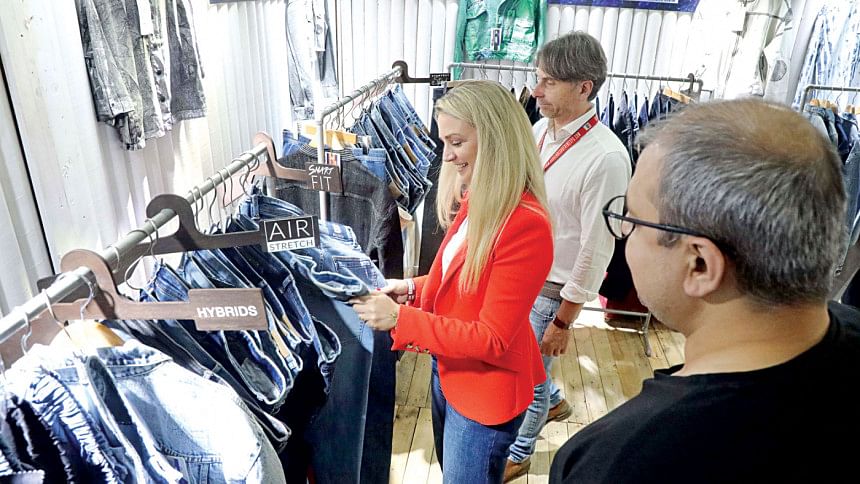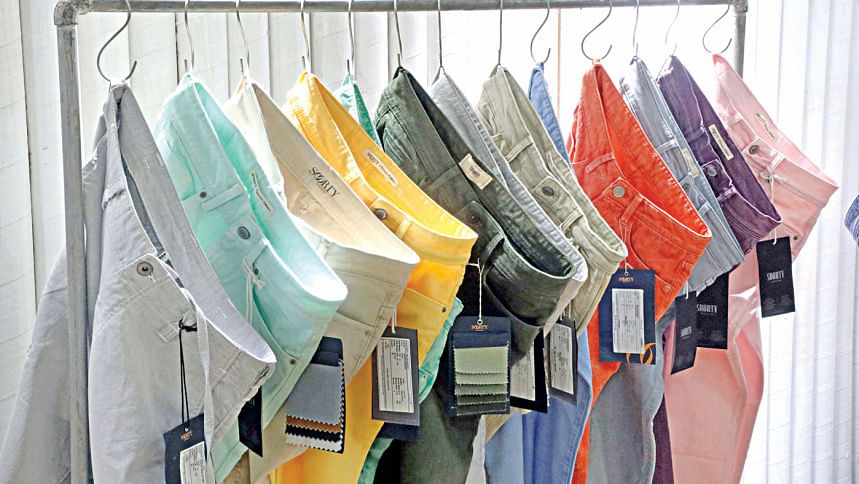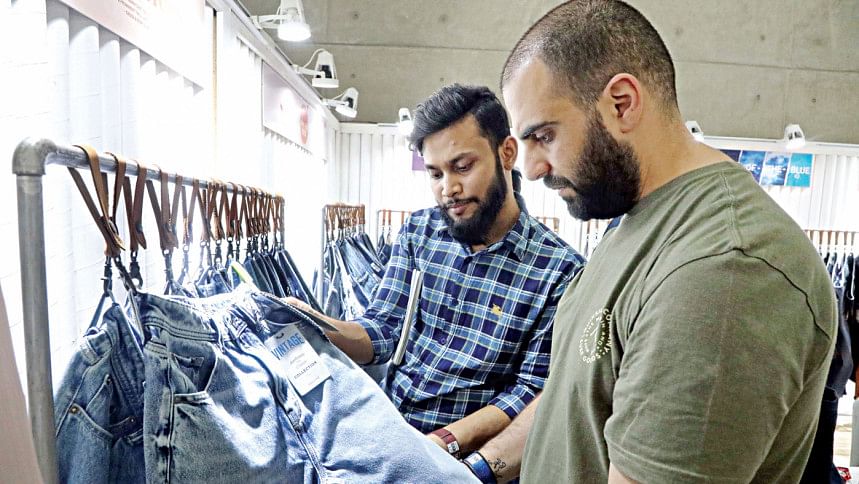Share responsibility in ensuring sustainability

Water consumption for manufacturing denim fabrics has reduced significantly in Bangladesh as local producers now use highly efficient technology, according to market players.
However, international retailers and brands are not paying premium prices when sourcing denim apparel items from the country even though sustainable manufacturing is being ensured.
Denim mills currently use 10 litres of water for washing and dyeing each kilogramme of the fabric, down from more than 360 litres previously.
This means that if a pair of jeans costs $5 to make, about 50 cents of that amount is spent on water for washing and dyeing purposes.
Still, buyers are not paying premium prices for sourcing denim apparel items from Bangladesh even though less of the valuable resource is being used, local garment makers said.
Denim mills currently use 10 litres of water for washing and dyeing each kilogramme of the fabric, down from more than 360 litres previously.
Traditionally, denim fabrics are handwashed after being dunked repeatedly in vats of dye and treated with chemicals to achieve the desired look, which is a process that requires huge amounts of water.
Now, most local denim makers use automated ozone and laser technologies to give the material their preferred appearance, helping save on water consumption.

The shift towards sustainable production of denim apparels is being propelled by the demand of western consumers, who want clothing made in line with environmental protection measures.
Tanvir Hossain, project manager of Jeanologia, said local textile millers were previously unaware about the harms of using excessive water and chemicals for manufacturing their products.
But this has changed over time with Jeanologia, a supplier of eco-friendly textile machinery, having set up its laser finishing technology at 800 factories across the country.
He then said ongoing inflationary pressure in Europe stemming from Russia's invasion of Ukraine has affected his sales.
Hossain yesterday made these comments at the two-day Bangladesh Denim Expo, organised by Denim Expert Ltd, at the International Convention City Bashundhara in Dhaka.
More than 90 local and foreign participants are showcasing their latest garments, fabrics, threads, machinery, finishing equipment and accessories at the event.
Brant Tong, sales manager of Vietnam's XDD Textile, said business has been slow for them due to the recent inflation.
"We are struggling now," he added.
However, he believes the situation may change after six months, when the global economy rebounds from the current downturn brought on by crises in the western world.

Even so, Bangladesh remains a good market for XDD as the company has maintained annual sales growth of 30 to 40 per cent in the country.
"Bangladesh is a big market for my company," Tong said.
"Having so far sold about seven lakh yards of denim fabrics in the country, we are using less water for dyeing and washing thanks to modern technologies," he added.
Alice Tonello, managing director of Tonello of Italy, agreed that the garment business has slowed down in Europe due to high inflation amid the Russia-Ukraine war.
"Consumers have changed a lot after the Covid-19 pandemic as they now like to spend more on tourism and other experiences rather than garment items," she said.
Tonello, who mainly supplies washing and dyeing technologies, went on to say that local millers have indeed significantly reduced water consumption by using advanced machinery.
Syed Mohammad Tahmir, director of Pacific Jeans, said international retailers and brands are not paying premium prices despite having to spend extra on ensuring sustainable production.
Azizur Rahim Chowdhury, managing director of J M Fabrics Ltd, echoed the same.
"They are offering conventional prices despite the additional cost that comes with reductions in water consumption," Chowdhury said.
Mostafiz Uddin, managing director of Denim Expert Ltd, said ensuring proper prices for denim products should be a shared responsibility.
"Only the manufacturers should not bear the whole cost of sustainability," he added.

 For all latest news, follow The Daily Star's Google News channel.
For all latest news, follow The Daily Star's Google News channel. 







Comments